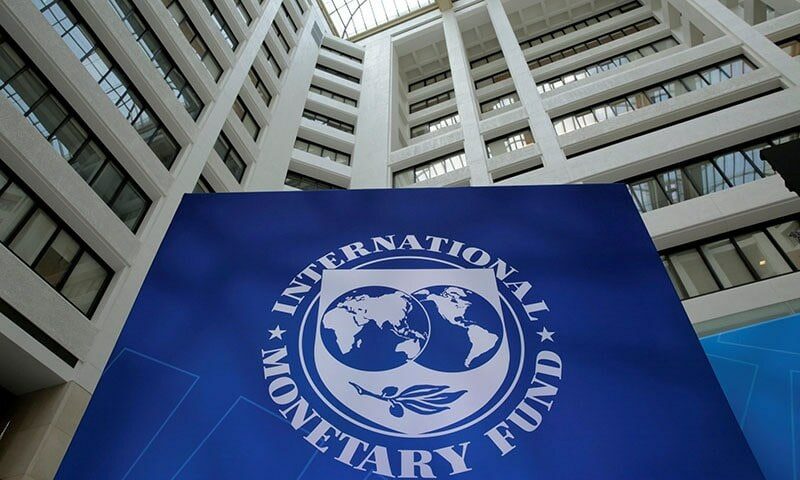Highlights of IMF Extended Credit Facility Report for Ethiopia - ENA English
Highlights of IMF Extended Credit Facility Report for Ethiopia

Addis Ababa July 30/2024 (ENA) The International Monetary Fund (IMF) has highlighted the commitment of the Ethiopian government to address macroeconomic imbalances, restore external debt sustainability, and lay the foundation for high, private sector-led growth.
Following Prime Minister Abiy Ahmed's announcement that Ethiopia has embarked on full implementation of macroeconomic reform policy, the International Monetary Fund (IMF) issued a staff report on 29 July, 2024, approving a Four-Year 3.4 billion US dollar Credit Facility Arrangement for Ethiopia.
The recent measures by the government to decisively tackle macroeconomic imbalances, including moving to a market-determined exchange rate, removing current account restrictions, and modernizing the monetary policy framework to control inflation, are critical steps forward.
According to the staff report, the policies are well calibrated to protect the vulnerable communities and mitigate the socioeconomic impacts of the reforms.
It also noted that the broader agenda for private sector development in the country is advancing.
The Homegrown Economic Reform Agenda II retains the objective of enabling private sector led development with various critical reforms.
The reform opens the economy to private investment, the IMF stated, recalling the draft of a new banking law allowing foreign banks to operate to the Council of Ministers in June, 2024.
Moreover, a securities exchange is set to be launched by the end of 2024, and a range of sectors, including retail and wholesale trade, logistics, energy, and mobile financial services are being opened to domestic and/or foreign investment.
IMF also explained the measures being taken by Ethiopia removing barriers to international trade.
“Ethiopia is preparing to apply to join the WTO and is implementing steps for full participation in the African Continental Free Trade Area and other regional trade arrangements, including by an overhaul of tariff lines.”
The country has also been improving the regulatory environment and supporting competition by fully digitalizing trade registration and licensing system, the revision of trade and consumer protection law, and a framework for public-private dialogue that will be institutionalized.
The four-year 3.4 billion USD credit facility arrangements for Ethiopia is expected to catalyze external financing from multilateral and official bilateral partners and creditors and increase reserves to an adequate level.
The program envisages ambitious foreign exchange market (FX), monetary, and fiscal measures, which, with prospective donor financing and debt treatment, will help close the Business Owner's Policy (BOP) gap.
The residual external financing gap, anchored on bringing reserve adequacy to 3.5 months of import coverage by the end of the program period, is estimated 10.7 billion USD until 2027/28, of which about 4.4 billion USD in 2024/25.
A portion of the fund disbursements in the first year of the program (30 percent or 16 percent of the total program disbursement, SDR 421.73 million) would be used for budget support to ensure non-inflationary financing of the budget, including social spending in the context of exchange rate reform.
Debt relief is needed during both the program and post-program periods, mainly to eliminate protracted breaches in the exports-related debt vulnerabilities indicators, the report pointed out.
It added that the government headed by Prime Minister Abiy Ahmed has been in office since April 2018, launching the Homegrown Economic Reform Agenda (HGER) to modernize the macroeconomic policy framework, boost competitiveness, and lay the foundations for private sector-led growth.
The government’s reform mandate was reaffirmed in the 2021 elections, with the next general elections expected in 2026.
Despite the challenges, the government has renewed its reform efforts, moving ahead with Home-Grown Economic Reform Plan (HGER 2.0) in 2024.
The four-year financing package approve by IMF Executive Board will support Ethiopia’s Homegrown Economic Reform Agenda to address macroeconomic imbalances, restore external debt sustainability, and lay the foundations for higher, inclusive, and private sector-led growth.
IMF Managing Director Kristalina Georgieva said this is a landmark moment for Ethiopia. "The approval of the Extended Credit Facility (ECF) is a testament to Ethiopia’s strong commitment to transformative reforms. The IMF looks forward to supporting these efforts to help make the economy more vibrant, stable, and inclusive for all Ethiopians."
The Homegrown Economic Program envisages a comprehensive policy package to stimulate private sector activity and increase economic openness to promote higher and more inclusive growth.